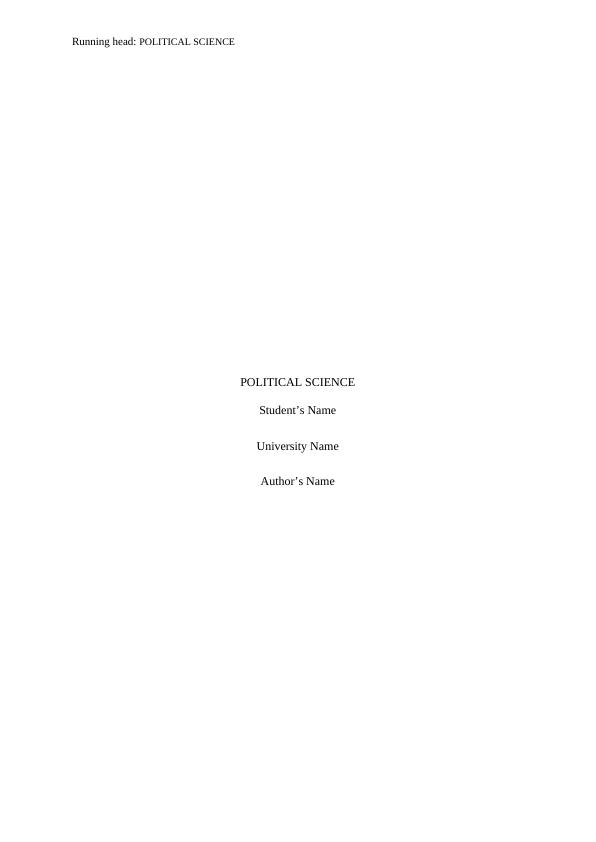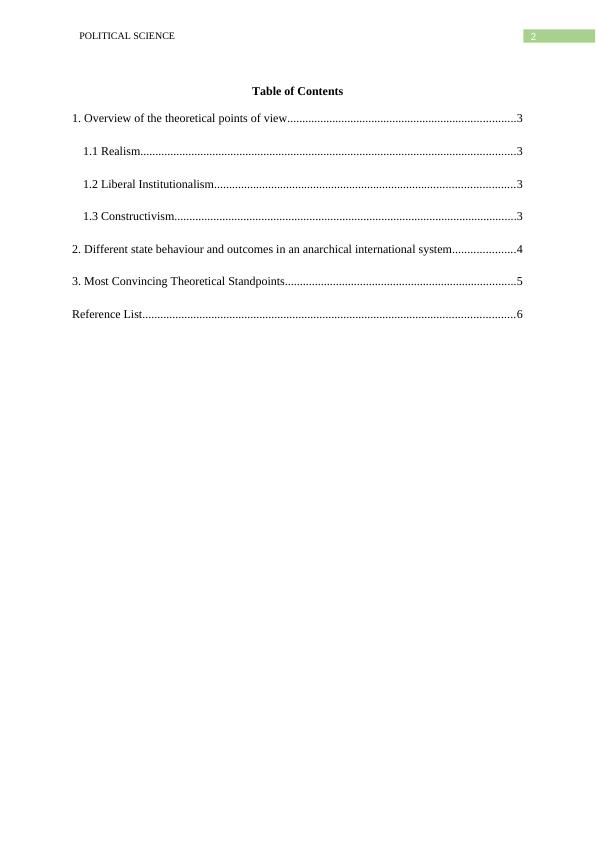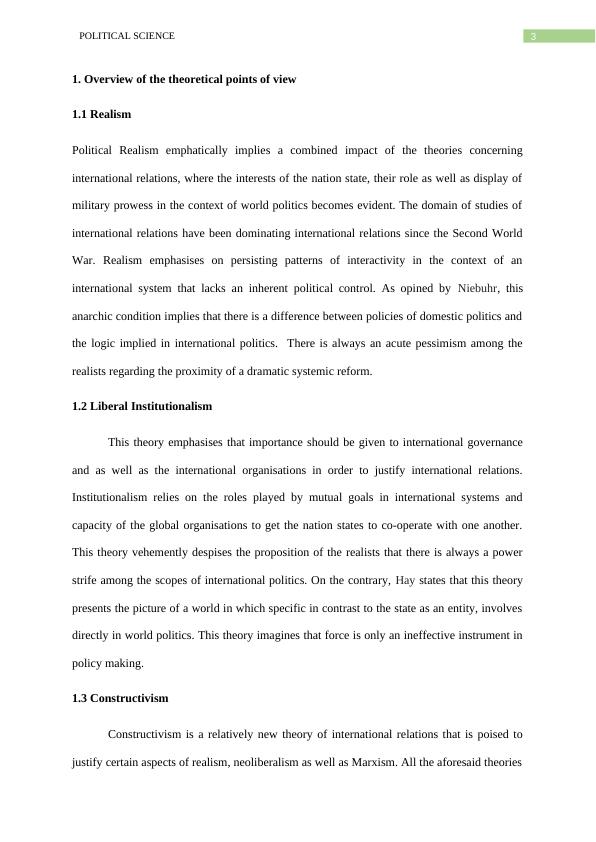Overview of Theoretical Points of View in Political Science
6 Pages1137 Words326 Views
Added on 2023-06-04
About This Document
This article discusses the theoretical points of view in political science including realism, liberal institutionalism, and constructivism. It also explores the different state behaviors and outcomes in an anarchical international system and provides the most convincing theoretical standpoint. The subject is Political Science and the reference list is included.
Overview of Theoretical Points of View in Political Science
Added on 2023-06-04
ShareRelated Documents
End of preview
Want to access all the pages? Upload your documents or become a member.
Theoretical Approaches to Explain the Causes of War in International Relations
|5
|1210
|488
Understanding International Politics | Realism and Idealism theory
|5
|1689
|35
An Introduction to National Security Processes and Problems
|4
|474
|18
International Relations - China and the United States
|6
|1518
|107
How well do IR’s main theories explain the structure and
|11
|3656
|53
Theory of International Relations
|4
|688
|33



